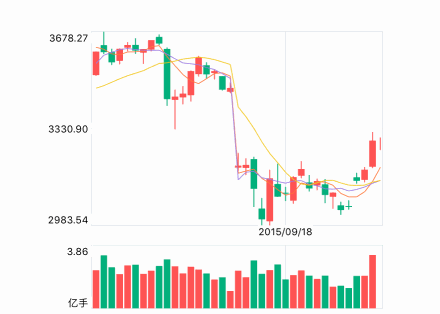MerchantKit (working but work-in-progress)
A modern In-App Purchases management framework for iOS developers.
MerchantKit dramatically simplifies the work indie developers have to do in order to add premium monetizable components to their applications. Track purchased products, retrieve purchases, manage subscription expiration dates, restore transactions, validate receipts, and more.
Designed for apps that have a finite set of purchasable products, MerchantKit is a great way to add an unlockable 'pro tier' to an application, as a one-time purchase or ongoing subscription.
Example Snippets
Find out if a product has been purchased:
let product = merchant.product(withIdentifier: "iap.productidentifier")
print("isPurchased", merchant.state(for: product).isPurchased)
Buy a product:
let task = merchant.commitPurchaseTask(for: purchase)
task.onCompletion = { result in
switch result {
case .succeeded(_):
print("purchase completed")
case .failed(let error):
print("\(error)")
}
}
task.start()
Get notified when a subscription expires:
public func merchant(_ merchant: Merchant, didChangeStateFor products: Set<Product>) {
if let subscriptionProduct = products.first(where: { $0.identifier == "subscription.protier" }) {
let state = merchant.state(for: subscriptionProduct)
switch state {
case .isSubscribed(let expiryDate):
print("subscribed, expires \(expiryDate)")
default:
print("subscription expired")
}
}
}
Project Goals
- Straightforward, concise, API to support non-consumable, consumable and subscription In-App Purchases.
- No external dependencies beyond what Apple ships with iOS. Right now, the project links Foundation and StoreKit and requires CocoaPods for OpenSSL usage. Ideally, I would love to eliminate OpenSSL dependency completely. This requires investigation and would appreciate guidance here.
- Prioritise developer convenience and accessibility over security. MerchantKit users accept that some level of piracy is inevitable and not worth chasing.
- Do-whatever-you-want open source license.
- Compatibility with latest Swift version using idiomatic language constructs.
The codebase is in flux right now. MerchantKit is by no means finished and there are major components that are in the project's scope but completely unimplemented (consumable products are not supported). The test suite is currently bare.
Getting Started
-
Compile the MerchantKit framework and embed it in your application. There is currently one dependency on a
opensslframework. Therefore, the easiest way to get up and running is to use Cocoapods; the spec includes an OpenSSL dependency for ease of use. AddMerchantKitto your project's Podfile and build. -
In your app delegate, import
MerchantKitcreate aMerchantinstance inapplication(_:, didFinishLaunchingWithOptions:). Supply a storage object (recommended:KeychainPurchaseStorage) and a delegate.
func application(_ application: UIApplication, didFinishLaunchingWithOptions launchOptions: [UIApplicationLaunchOptionsKey: Any]?) -> Bool {
self.merchant = Merchant(storage: KeychainPurchaseStorage(serviceName: "AppName"), delegate: self)
}
- Implement the two required methods in
MerchantDelegateto validate receipt data and receive notifications when thePurchasedStatechanges for registered products.
func merchant(_ merchant: Merchant, didChangeStateFor products: Set<Product>) {
for product in products {
print("updated \(product)")
}
}
func merchant(_ merchant: Merchant, validate request: ReceiptValidationRequest, completion: @escaping (Result<Receipt>) -> Void) {
let validator = LocalReceiptValidator(request: request)
validator.onCompletion = { result in
completion(result)
}
validator.start()
}
- Register products as soon as possible (typically within
application(_:, didFinishLaunchingWithOptions:)). You may want to load these products from a resource file. The includedLocalConfigurationobject provides a mechanism for this.
let config = try! MerchantKit.LocalConfiguration(fromResourceNamed: "MerchantConfig", extension: "plist")
self.merchant.register(config.products)
- Call
setup()on the merchant instance before escaping theapplication(_:, didFinishLaunchingWithOptions:)method. This tells the merchant to start observing the payment queue.
func application(_ application: UIApplication, didFinishLaunchingWithOptions launchOptions: [UIApplicationLaunchOptionsKey: Any]?) -> Bool {
self.merchant = Merchant(storage: KeychainPurchaseStorage(serviceName: "AppName"), delegate: self)
self.merchant.register(...)
...
self.merchant.setup()
}
- Profit! Or something.
To Be Completed (in no particular order)
- Add tests to the bare test suite. MerchantKit components can be tested separately, including the validators and
PurchaseStoragetypes. - Implement consumable purchases. This will likely involve a special delegate callback to tell the application to update its quantities.
- Enhance the API of
PriceFormatterto be a comprehensive formatter for product prices. This includes adding ways to express subscription periods (eg: '£3.99 per month'). - Extended documentation with example usage projects.
- Support downloadable content In-App Purchases.
- Probably a lot more stuff I haven't thought of yet.

